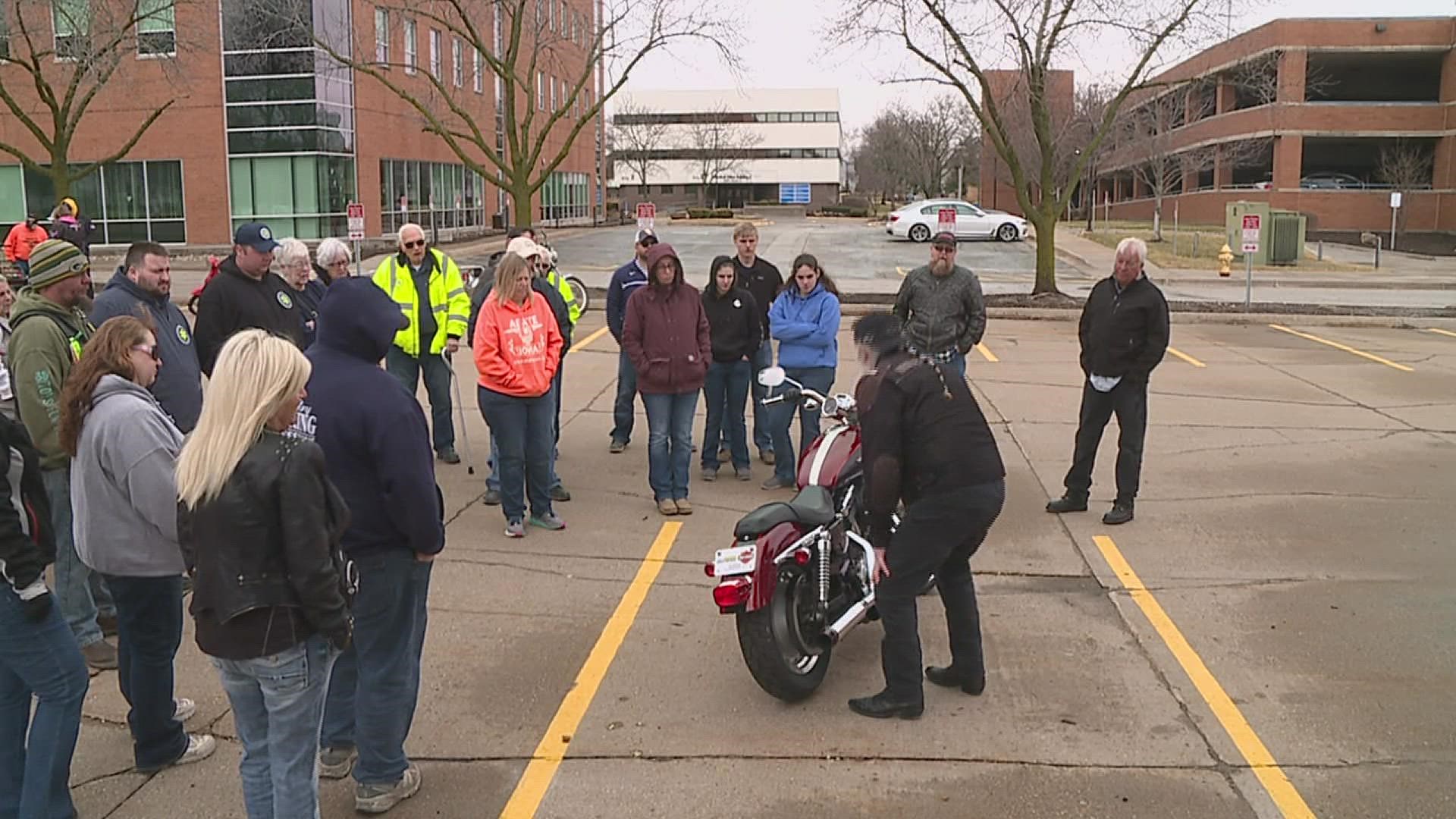DAVENPORT, Iowa — ABATE of Iowa, District 15, is trying to reduce the number of fatal motorcycle accidents by hosting its annual "two-wheel trauma" training on Saturday, March 19 for first responders.
Over 50% of all motorcycle crashes end up causing serious injury or even killing the rider.
In 2019, 5,014 motorcyclists died, according to the National Highway Traffic Safety Administration. It also reported that per vehicle miles traveled in 2019, motorcyclists were about 29 times more likely than passenger vehicle occupants to die in a motor vehicle crash and were 4 times more likely to be injured.
ABATE is trying to lower that and make the roads safer for bikers.
"I mean, the more people that know how to respond, it would be extremely helpful," said coordinator Bill Gillespie.
They've been holding the safety training since 2005. This year around 50 first responders attended, including nurses, firefighters, law enforcement officials and EMTs.
The all-day training teaches them how to assess an accident scene and injury, how to treat environmental injuries, such as burns, and how to manage an accident scene and a crowd.
Several ABATE members also brought their motorcycles in for the bike lab training portion. Here, first responders got to know a little bit about the different types of bikes.
"This program is designed for just about anything with handlebars, bicyclists, snowmobiles, you know it," Gillespie said. "We're going to look at it, how to handle it. Sometimes certain bikes have certain hotspots and that if they have to remove a bike off a victim, then they can do it safely."
When it comes to an injured rider, Gillespie explained how first responders need to assess and react. It all depends on the injury's point of impact.
"Has the rider come off the motorcycle? Has he had just one impact? Or has there been multiple impacts?" he said. "One impact is actually worse. There's all kinds of internal things that you need to look for. The multiple, you would treat just a little differently."
He recommends the course to everyone and added some advice for what people who aren't first responders should do if they see a motorcycle crash.
"First of all, do not remove the helmet off a victim," Gillespie said. "It takes three people to do that properly. And the main thing is to try to keep the injured motorcyclist calm, keep him lay still — sometimes they may want to get up, walk around. They should wait until help arrives and assesses them. They may seem alright right away, but they may deteriorate quickly."
Gillespie also recommends motorcyclists take a course in accident scene management so that they know what to do before help arrives.
The first responders who took part in the course Saturday received continuing education credit.
You can find more information on the "two wheel trauma" training by clicking/tapping here.

